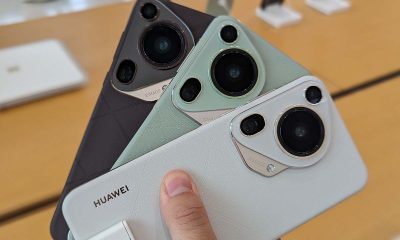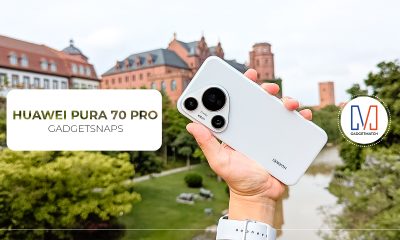
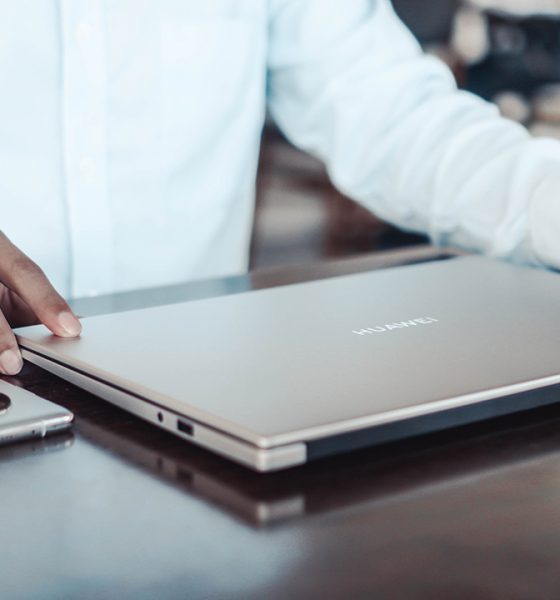
Security and privacy have been a major issue in this era. Following the tech controversies relating to espionage, banning, and data breaches, people can’t help but wonder if their data is still safe.
In a conference held by VST-ECS Philippines in Boracay Island, CxO Innovation Summit 2019 was mounted to tackle data and security. GadgetMatch had an exclusive interview with Huawei, discussing how the Chinese company handles their consumers’ data and what they are doing to protect it.
The Government should protect your data
GadgetMatch met with Patrick Low, Principal Architect for CTO Office of Huawei Enterprise Business Group. Low discussed how consumers’ data are being acquired everywhere. For instance, a surveillance camera in a public or private space can provide facial recognition — another form of identifiable data.
Low stated how our data do not belong to us, not even him — an executive from the Chinese company. Expounding, he says the moment we sign up on websites and different platforms, we trade our data in exchange for using their services. Low also demonstrated how Blockchain gives the user their data back, however, it isn’t adapted widely in the Philippines yet.
The Huawei executive further explained that despite the acquisition of our data, sensitive information is protected through policies formed by the government. Even so, the Principal Architect further pressed “Having a policy or rules is just a start, at the end of the day we need to enforce it.” Low cited how Singapore and Australia’s Data Protection Acts allow authorities to enforce through informing — which must be followed by developing countries.
“We do not touch data”
When asked regarding the spying accusations thrown at the company, Low simply stated “We do not touch data. That’s a policy from top-down.”
“Huawei has not been caught or found out in any way to be violating personal rights. Because of the media and diplomatic situations, Huawei is always guilty. It’s difficult for Huawei to handle.” Low added.
The executive then demonstrated Huawei’s strategy to protect data, such as creating servers and encrypting it. Low added that only applications have the requirement to hold user data. According to Low, any application — WhatsApp for instance — analyzes and sends your data back to where the app’s server is located. In this case, it’s being sent in the United States.
“We do not touch data. That’s a policy from top-down.”
Low then warned about the applications you are downloading through APKs and even in Google Play Store. Low advised to always check your sources, the app’s server location, and read the terms and conditions we skip regularly.
Moving forward, Huawei takes cybersecurity very seriously. Low stated, “If we are caught doing anything wrong without the user’s consent, we’re going to face a lot of problems. If something wrong happens, the company will suffer deeply.”

For the longest time, Google kept Pixel and Android behind two different teams. While the Pixel team dealt with devices made by and for the brand, the Android team ships a product meant for brands outside of the company’s purview. However, the days of separation are at an end. Google is officially merging its Pixel and Android teams together.
In a shocking announcement, the company has confirmed that the teams handling hardware and software will fall under a single team headed by Rick Osterloh. Prior to the merge, Osterloh was the senior vice president of devices and service, which was Google’s hardware branch. He will now oversee both hardware and software.
Because of the new leadership change, Hiroshi Lockheimer, former head of Android, will now move on to other projects within Alphabet. Of note, the change is not harsh for Lockheimer. He and Osterloh had been contemplating on the merge for a while.
Now, why the change? As is the case with everything today, it’s all because of AI. Speaking to The Verge, Osterloh explains that the merge will help with “full-stack innovation.” With how technology is these days, it’s now impossible to develop AI without having a close eye on hardware, such as in Google’s AI developments for the Pixel camera. Merging the teams will help streamline development, especially when hardware is involved.
Despite the change, outside brands, like Qualcomm’s Cristiano Amon, remains confident of Android’s capabilities outside of Google. Just expect more AI coming out in the near future.

The ongoing trade war between the United States and China is putting a lot of companies out of business in one country. While all eyes are currently on America’s crusade against TikTok, China has launched a salvo of its own. The country has started banning AMD and Intel, starting with government devices.
Recently, as reported by the Financial Times, China has introduced a new rule that bans American chipsets and servers from government agencies. The new ban includes AMD, Intel, and Microsoft Windows.
In lieu of the now-banned brands, Chinese government agencies must use approved brands from a list of 18 Chinese manufacturers. Unsurprisingly, the list includes Huawei, another brand involved in the ongoing trade war. (Huawei is still banned on American soil.)
As with bans from America, China’s latest rules stem from a desire to implement national security. Both countries allege that using brands from the opposing side will open a potential avenue for transferring classified information.
Currently, the ban against the American chipsets are only affecting government devices. However, if it follows the same trajectory as Huawei and TikTok in the United States, a government-only ban might soon lead to an all-out ban on consumer devices. As TikTok is currently hanging in the balance, it’s unlikely that the trade wars will cool down anytime soon.

So far, Apple’s greatest enemy has been the European Union. Months and months of claiming that the company engages in anti-competitive practices, the region has successfully caused Apple to drastically change a lot of things about the iPhone including the Lightning cable. Now, a new challenger wants Apple to answer for its supposed grip on the industry: the United States government.
Today, the Department of Justice is officially suing Apple for supposedly monopolizing the smartphone industry and stifling competition. The lawsuit alleges that Apple’s lineup of products prevent users from trying out other brands. For example, Apple limits how well a third-party smartwatch works on an iPhone, pushing users to go for an Apple Watch instead.
The lawsuit also includes an important pain point in Apple’s fight in Europe. It says that the company makes it difficult for iPhone users to communicate with Android users (and vice versa). Late last year, the company already committed to supporting RCS as a messaging standard, finally easing communication between the two systems. Their adoption has yet to arrive, though.
Though not as stringent as Europe, the American government is no slouch when it comes to questioning its own companies for pursuing anti-competitive practices. In the past, it went through Google and Spotify to protect the interests of its citizens. The lawsuit against Apple is no different, gathering signatures from sixteen states.
For Apple’s part, the company aims to get the case dismissed, alleging the lawsuit’s unfair scope of just the American people when it targets the entire world.
SEE ALSO: Apple opens first Developer Center in Southeast Asia
-
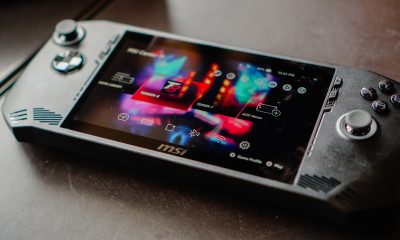
 Features2 weeks ago
Features2 weeks agoWhy choose the MSI Claw?
-
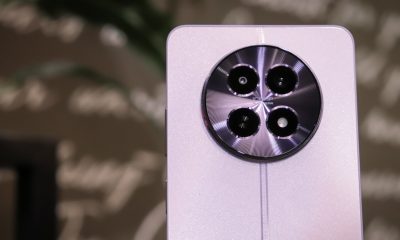
 Reviews7 days ago
Reviews7 days agorealme 12 5G review: It was enchanting to meet you
-
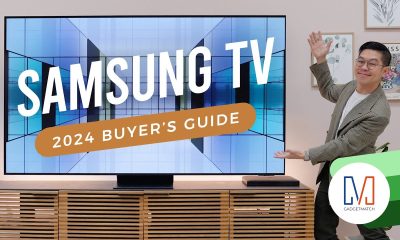
 Buyer's Guide2 weeks ago
Buyer's Guide2 weeks ago2024 Samsung TV: Buyer’s Guide
-

 Reviews2 weeks ago
Reviews2 weeks agoJBL Soundgear Sense review: Make every run magical
-
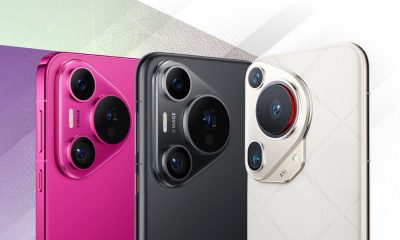
 Smartphones2 weeks ago
Smartphones2 weeks agoHuawei Pura 70 series is live in China
-
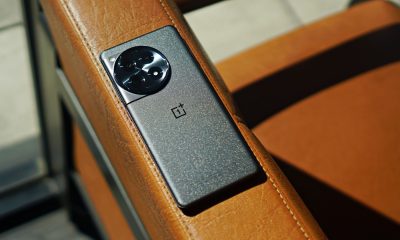
 Reviews3 days ago
Reviews3 days agoOnePlus 12R review: Making sense of OnePlus’ latest flagship
-

 Reviews2 weeks ago
Reviews2 weeks agoChallengers review: A thrilling drama wrapped as a tennis anime
-
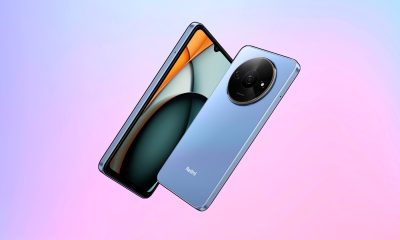
 News1 week ago
News1 week agoXiaomi Redmi A3 Philippine pricing, availability



